Namespaces |
| namespace | anonymous_namespace{treeviewer.cxx} |
| namespace | CppTagDB |
| namespace | CursesInterface |
| | A namespace that wraps the many functions that interact with the curses terminal used by the program.
|
| namespace | fmtdalgo |
| | fmtdalgo defines symbols used by the fmtd interface. It is only needed because you can't specialize a template in a class body -- DOH! STUPID C++
|
| namespace | foreach_helpers |
| namespace | muSED |
| | The namespace that contains the micro-SED interpreter definitions.
|
| namespace | viewport |
Classes |
| class | appChooser |
| struct | ascii_chart |
| | An ascii_chart is a block of characters which contains a picture of a set of x,y pairs. The idea is that you use the plot() methods to fill the chart with spaces and stars representing data set. More...
|
| struct | basicClassType |
| | Defines a member, value, to be one of the basicClassTypes values. More...
|
| struct | basicClassType< void > |
| | A type that contains enumeration value, named "value", which indicates the basic kind of data that a template parameter T refers to. This particular specialization of the template identifies the "void" type which cannot be identified by the more complex expression in the main specialization. More...
|
| struct | caseless_compare |
| struct | CharCompare |
| | < Comparator function needed for the stl search algorithm, below. More...
|
| class | CharSetTranslator |
| | An object performs mappings between ASCII character set ranges. To use a CharSetTranslator, you construct it and then use either one of of the following members: More...
|
| struct | compare_port_by_col_row |
| struct | compare_port_by_row_col |
| class | CPP_Buffer_Token_Source |
| | A source of tokens extracted from a character array. More...
|
| class | CPP_File_Token_Source |
| | A source of CPP_Token's which comes from a named file. More...
|
| class | CPP_Stream_Token_Source |
| | A source of CPP_Token's which comes from an istream. More...
|
| class | CPP_String_Token_Source |
| struct | CPP_Token |
| | An object that represents a C++ lexical token. CPP_Token objects are usually obtained from token streams. See CPP_Token_Stream's for an example use. More...
|
| struct | CPP_Token_Source |
| | A generic representation of a stream of CPP_Token. More...
|
| class | CPP_Token_Stream |
| | C++ token stream template (ie a source of CPP_Token objects). More...
|
| class | CPP_Token_Stream_Prep |
| | A CPP_Token_Stream, does not include preprocessor directives. Doing so would greatly complicate any grammer. Instead, preprocessor directives are handled only if desired in an out of band style. To handle preprocessor directives, derive a class from this one (CPP_Token_Stream_Prep) and implement a virtual method which will be invoked by the stream as preprocessor directives are encountered. Note that the '#' and any spaces surrounding it will not be included in the text passed to the virtual method. More...
|
| class | CsvViewer |
| | A Comma Separated Values file viewer. More...
|
| class | cubic_spline |
| | Cubic interpolatory spline. Derived from the example in the book Numerical Computing by Shampine and Allen. Copyright 1973. ISBN 0-8150-6. More...
|
| class | CursorWindow |
| | Before directly using this class, you should consider reading text_windows. More...
|
| struct | DirectoryViewer |
| | An object of the DirectoryViewer class is passed to a ListViewer at the time of its construction so that the list viewer implements a directory viewing command interface. More...
|
| struct | EOL_Sequence_t |
| class | EtagsDB |
| | A class that encapsulates the searching of the database created by the "etags" program. EtagsDB lets you read the database file and search it for a symbol. See "man etags" or a google search. More...
|
| struct | EvalAnd |
| | Assuming that the input template parameter types are designed to contain a compile time constant member, named value, which evaluates to either true or false, construct a compile time constant in this class, also named value, which will be true if and only if all the template parameter classes are true. More...
|
| struct | EvalOr |
| | Assuming that the input template parameter types are designed to contain a compile time constant member named value which evaluates to either true or false, construct a compile time constant in this class, also named value, which will be true if any of the template parameter classes is true. More...
|
| struct | EvalTypeIf |
| | A mechanism for selecting between either of two types based on a compile time constant expression. More...
|
| struct | EvalTypeIf< 0, ZeroClass, OneClass > |
| struct | EvalTypeIf< 1, ZeroClass, OneClass > |
| struct | false_value_type |
| | a type that means no. false_value_type::value == 1. More...
|
| class | FileContents |
| | An in-memory representation of a file's contents. An in memory copy of the file as returned by FileName::slurp(). If the ok() method returns true then no error occurred during the reading. However if it returns false, an explanation of the error can be obtained using 'error()'. More...
|
| struct | FileMode |
| | A representation of a file's mode (ie permissions and type). If the file is a symbolic link, the link bit will be 1, but the other bits will refer to file to which the link points. Note that this is the design of the FileMode class -- but also note that the FileMode class does not have way of populating itself. To obtain a FileMode object's value, call FileName::file_stat(&fileMode). More...
|
| class | FileName |
| | A file's name and handle for invoking many file system functions. More...
|
| struct | FileNameComparator |
| struct | FileStatus |
| | The complete description of a file's attributes. More...
|
| struct | FileTime |
| | A portable representation of a file's (local) time. More...
|
| struct | fmtd |
| | A numeric to ascii string conversion class based on snprintf. The constructor for this class constructs an object containing a char buffer holding the formatted resultant string. More...
|
| class | FTP |
| | This class defines an interface to the ftp program. Basically it provides filesystem like queries and operations that operate on a remote machine using the ftp program to do the work. More...
|
| class | FTPviewer |
| | An FTPviewer is a Viewer meant for displaying and editing files and directories exported by an ftp server. It a large extent, it looks and feels like a directory viewer -- except that the files and directories being displayed are on a remote system. The ftp viewer also maintains a reference to a 'current directory' on the local machine where files on the remote machine will be stored when you 'get' a file. Analogously, files in the local directory may be 'put' to the remote system. More...
|
| class | hash_list |
| | A hash_list<Key,Value,Hash> is a list of pair<Key,Value> which can be quickly searched for a given K. Most operations are of fixed cost. Memory consumed is approximately 3 * sizeof(void*) + sizeof(K) + sizeof(V). The primary storage mechanism is a list of Key,Value,bucket_next objects. This gives O(1) insert, erase, iteration, etc. The 'bucket_next' member kept with the Key,Value pair lets us have a fixed time cost to find a given K -- there is a hash table containing all Keys -- this table's buckets thread through the individual objects stored in the linked list. More...
|
| struct | Hasher |
| | Hasher<T> is a class object which pretends to be a function which returns a semi-unique value for objects you pass it. That is, it returns you an integer value which can be used as a hash code in various algoriths. To use a Hasher, you declare a Hasher object, then execute it like a function in order to get a hash value. For example: More...
|
| struct | Hasher< double > |
| | Compute a hash value for a double precesion floating point number. More...
|
| struct | Hasher< float > |
| | Compute a hash value for a single precesion floating point number. More...
|
| struct | Hasher< std::string > |
| | string specific hash algorithm. More...
|
| struct | Is_Path_Separator |
| struct | Is_Path_Space |
| | A functor that tells you if a character is counted as a pathname separator. More...
|
| struct | is_pathsep |
| struct | isArithmeticType |
| | isArithmeticType<T>::value is a compile time constant that is only true if T can be used in normal arithmetic operations. More...
|
| struct | isArithmeticType< const void > |
| | isArithmeticType<void> is a variant of isArithmeticType that does not define a member named value and thus will will not compile correctly if an arithmetic type is required. More...
|
| struct | isArithmeticType< void > |
| | isArithmeticType<void> is a variant of isArithmeticType that does not define a member named value and thus will will not compile correctly if an arithmetic type is required. More...
|
| struct | isArrayType |
| | isArrayType<T>::value is true if T is an array More...
|
| struct | isArrayType< T const [N]> |
| | isArrayType<T>::value is true if T is an array More...
|
| struct | isArrayType< T[N]> |
| | isArrayType<T>::value is true if T is an array More...
|
| struct | isClassType |
| | isClassType<T>::value is a compile time constant that is true only if T is a class, or struct. More...
|
| struct | isConstType |
| | See isConstType<T>::value for a const expression telling you whether or not T is a "const" type or not. More...
|
| struct | isConstType< const T > |
| struct | isConvertibleType |
| | isConvertible<From,To>::value is a compile time constant which is true if type From can be converted into type To without special syntax. More...
|
| struct | isConvertibleType< const double, int > |
| struct | isConvertibleType< const float, int > |
| struct | isConvertibleType< const long double, int > |
| struct | isConvertibleType< const void, To > |
| | A wrapper for a value that indicates that type "To" is a const void. More...
|
| struct | isConvertibleType< double, int > |
| struct | isConvertibleType< float, int > |
| struct | isConvertibleType< long double, int > |
| struct | isConvertibleType< void, To > |
| | A wrapper for a value that indicates that type "To" is a void. More...
|
| struct | isEnumType |
| | isEnumType<T>::value is a compile time constant that is only true if T is an enumeration type -- and not simple arithmetic value, pointer, class, function pointer, etc. More...
|
| struct | isEnumType< const void > |
| struct | isEnumType< void > |
| struct | isFloatType |
| | isFloatType<T>::value is a compile time constant that is only true if if T is a floating point number of some form. More...
|
| struct | isFloatType< const void > |
| | A definition of isFloatType for const void type. Void is not a flaot type. More...
|
| struct | isFloatType< void > |
| | A definition of isFloatType for void type. Void is not a flaot type. More...
|
| struct | isFunctionType |
| | isFunctionType<T>::value is a compile time constant that is only true only if T can be executed like a function of 0 to 9 parameters. More...
|
| struct | isFunctionType< const void > |
| struct | isFunctionType< void > |
| struct | isIntegralType |
| | isIntegralType<T>::value is a compile time constant that is only true if T is an int, short, char, long, long long, or unsigned versions thereof. More...
|
| struct | isIntegralType< const void > |
| | isIntegralType<void> is a variant of isIntegralType that does not define a member named value and thus will will not compile correctly if an integral type is required. More...
|
| struct | isIntegralType< void > |
| | isIntegralType<void> is a variant of isIntegralType that does not define a member named value and thus will will not compile correctly if an integral type is required. More...
|
| struct | isPodType |
| | isPodType<T>::value is a compile time constant that is true if T is a plain old data type and not a struct or union. More...
|
| struct | ispodtype_impl |
| struct | ispodtype_impl< char > |
| struct | ispodtype_impl< double > |
| struct | ispodtype_impl< float > |
| struct | ispodtype_impl< int > |
| struct | ispodtype_impl< long > |
| struct | ispodtype_impl< long long > |
| struct | ispodtype_impl< short > |
| struct | ispodtype_impl< T * > |
| struct | ispodtype_impl< T *const > |
| struct | ispodtype_impl< T[N]> |
| struct | ispodtype_impl< unsigned char > |
| struct | ispodtype_impl< unsigned int > |
| struct | ispodtype_impl< unsigned long long > |
| struct | ispodtype_impl< unsigned short > |
| struct | isPointerType |
| | isPointerType<T>::value is a compile time constant that is true only if T is a pointer or a builtin array -- which can be treated like a pointer. More...
|
| struct | isPointerType< T * > |
| struct | isPointerType< T *const > |
| struct | isPointerType< T const * > |
| struct | isPointerType< T const *const > |
| struct | isPointerType< T const [N]> |
| struct | isPointerType< T[N]> |
| struct | isPolymorphicType |
| | isPolymorphicType<T>::value is a compile time constant that is true only if T is a class with virtual methods. More...
|
| struct | isPolymorphicType_impl |
| struct | isPolymorphicType_selector |
| | isPolymorphicType_selector exists to work around a compile error problem: More...
|
| struct | isPolymorphicType_selector< true > |
| struct | isSameType |
| | Member value tells you whether two types are the same. More...
|
| struct | isSignedType |
| | isSignedType<T>::value is a compile time constant that is true only if T is a signed number. More...
|
| struct | isSignedType< const void > |
| struct | isSignedType< void > |
| struct | isTemplate |
| | isTemplate<T>::value is a compile time constant that is only true if T is a template of between 1 and 9 template parameters. More...
|
| struct | isUnsignedType |
| | isUnsignedType<T>:value is a compile time constant which is true only if T is an unsigned numeric type. More...
|
| struct | isUnsignedType< const void > |
| struct | isUnsignedType< void > |
| struct | KeyViewer |
| | An object of the KeyViewer class is passed to a ListViewer at the time of its construction so that the list viewer implements a way to see how keys are interpreted. More...
|
| class | ListViewer |
| | A ListViewer is a simplified version of the generic Viewer interface. It only handles the viewing/editing of lists of strings. Each string is presented in vertical list form -- one string per line. More...
|
| struct | MachineInfo |
| | A description of the machine your program is running on and static methods to make inquiries. More...
|
| class | MRU |
| | A template container designed to provide a lightweight "most recently used" functionality. "Least recently used" is also implemented. More...
|
| struct | not_a_type |
| class | Ostreamable |
| | A base class that hooks up a derived class to the ostream i/o operation set. To give your class the ability to act like an ostream, derive from Ostreamble<Derived> and implement the ostreamable_helper(charT c) function that outputs a single character. More...
|
| class | OstreamableBuffer |
| | a trivial implementation of a stream buffer that only just routes the overflow() behavior (that prints characters) to class that owns the OstreamableBuffer More...
|
| struct | pointerReferent |
| | pointerReferent<T>::type is the type that T points to if T is a pointer. If T is not a pointer, then pointerReference<T>::type is the same as T. More...
|
| struct | pointerReferent< T * > |
| | Determine the type referred to by a mutable pointer. See member "type". More...
|
| struct | pointerReferent< T const * > |
| | Determine the type referred to by a const pointer. See member "type". More...
|
| struct | pointerReferent< T const [N]> |
| | Determine the type referred to by a const array's name. See member "type". More...
|
| struct | pointerReferent< T[N]> |
| | Determine the type referred to by an array's name. See member "type". More...
|
| class | ProgramOptions |
| | Class ProgramOptions represents the command line options and environment passed to a program by the operating system. A ProgramOptions object can be viewed as a map of environment variables as well as a list of non-option command parameters, and finally a map of options and their parameters. More...
|
| struct | removeAllExtents |
| | Like removeCV<T>, this function removes attributes from its template parameter T. In this case, it removes arrayness, constness, pointerness, and volatility. It defines a member type, type, which is the same as it's template parameter, T, but without *, &, [], or volatile keywords. In sort, it tells you what you are really looking at. More...
|
| struct | removeAllExtents< T[N]> |
| | See removeAllExtents<T> More...
|
| struct | removeConst |
| | typename removeConst<T>::type is a type that is the non-const version of T. For normal classes, removeConst<T>::type is the same as T, but for T which is const, type is the non-const form. More...
|
| struct | removeCV |
| | typename removeCV<T>::type is the same as type T but is neither const nor is it volatile. More...
|
| struct | removeReference |
| | typename removeReference<T>::type is the same as type T, but is not a reference. More...
|
| struct | removeReference_impl |
| struct | removeReference_impl< V & > |
| struct | removeVolatile |
| | typename removeVolatile<T>::type is a type that is the non-volatile version of T. For normal classes, removeVolatile<T>::type is the same as T, but for T which is const, type is the non-const form. More...
|
| struct | removeVolatile< volatile T > |
| class | Resources |
| | A Resources object represents a set of named values. Both the names and the values are strings. Thus, a Resources object is roughly equivalent to the operating system's environment structure but Resource are not identical with environment variables because they cannot be obtained using getenv(), and cannot be set using putenv. More...
|
| struct | SaveRestoreActiveWindow |
| | This class exists to provide a way of saving and restoring the currently active viewport. You declare a variable of this type, initializing it with the pointer to the cursor window. It then saves the currently active viewport. When the SaveRestoreActiveWindow object is destructed, it restores the active viewport. More...
|
| class | ScriptTableViewer |
| | A editor for tables produced by a user defined shell script program. See ../STV/README for an explanation of how to write such scripts. More...
|
| class | Sequence_Map |
| | A Sequence_Map is a collection of related sequences of T objects. Sequences supported by a Sequence_Map can not contain optional members. The template argument, H is the name of a class object with an operator()(T) that produces and integer value which is a 'hash' of T. More...
|
| class | SimpleRegex |
| | This file defines a C++ wrapper around the standard regular expression functionality. More...
|
| class | skiprope |
| | An vector-like collection<T> which is implemented in such a way that no large blocks of memory are created. This allows inserts and deletes to be done in a time which is proportional to the size of the block being acted upon -- rather than upon the whole size of the container. To pay for _this_ performance gain, random accesses within the vector require O(ln(N)) time rather than O(1) as you usually see in a vector. Iteration is still O(1) but is much slower than iteration in a vector<T>. More...
|
| class | skiprope_const_iterator |
| | A skiprope iterator simulates a pointer to type const T. The iterator knows about the structure of a skiprope. It knows that a skiprope is a linked list of nodes of varying widths. More...
|
| class | skiprope_iterator |
| | A skiprope iterator simulates a pointer to type T. The iterator knows about the structure of a skiprope. It knows that a skiprope is a linked list of nodes of varying widths. More...
|
| struct | skiprope_level_desc |
| class | skiprope_node |
| | A skiprope_node is a chunk of a skiprope<T>. Each node is a vector<T> and the number of T's in the vector varies from node to node. The start position of any given node is equal to the sum of the nodes before it. More...
|
| class | spline |
| | A spline is an approximation to a single valued function of one variable. The function is approximated by first defining a specific set of sample values. Other data points of the function are interpolated given the defined set. That is, you can approximate data points that don't really exist using one the interpolate_* methods or the function call operator. See below. More...
|
| class | StreamableString |
| | This class implements a quick and dirty way to create formatted strings -- it is simpler to use that strstream but may be slower if you are working on large streams. This kind of string is appropriate for quick formatting activities. More...
|
| class | StrTool |
| | This class just defines a bunch of string utility functions. They are part of a class just so that they don't clog up the global namespace. I suppose a namespace would have worked just as well. More...
|
| class | SymbolViewer |
| | A Viewer for the symbol table stored in a CppTagDB as created by the program, cpptagdb.exe. More...
|
| struct | SymbolViewerNodeInformation |
| | Information that can be associated with a TreeViewerNode which is specific to symbols as defined in the SymbolViewer. More...
|
| class | TableEditor |
| | An editor for table files whose fields are separated by some user defined character. More...
|
| class | TableViewer |
| | A TableViewer is a kind of viewer that shows rows and columns and allows the user to move around within the table. The TableViewer class is meant primarily to be derived from. It handles the basics of table editing without doing anything really useful. You should derive from a TableViewer and implement various methods as needed to do something useful. More...
|
| class | TextViewer |
| | A TextViewer is a Viewer meant for displaying but not editing ascii text files. It presents the user with the text of the named file and allows for scrolling (vertically and horizontally) as well as marking lines with the file for copying/pasting. More...
|
| class | TreeViewer |
| | A TreeViewer allows the display of an acyclic directed graph of TreeViewerNodes. More...
|
| class | TreeViewerNode |
| | A string object that is displayable in a tree structure. A node can have children, see methods children(), open(), and close(). More...
|
| struct | TreeViewerNodeInfo |
| | Derive from this class to implement data associated with tree viewer nodes. New up objects of your derived type and give them to tree viewer nodes using TreeViewerNode::adoptInfo(TreeViewerNodeInfo *); When the node gets deleted, the node info will get deleted. More...
|
| struct | true_value_type |
| | a type that means yes. true_value_type::value == 1. More...
|
| struct | UserInfo |
| | Data about a given user and queries therefore. If the queries fail -- such as when a specified user id is invalid, the name_ will be an emtpy string. Otherwise, the data should be valid. More...
|
| class | Viewer |
| | Before directly using any of the classes in this file, you should consider reading text_windows. More...
|
| class | ViewerManager |
| | Before directly using any of the classes in this file, you should consider reading doc/text_windows. More...
|
| class | ViewerSelector |
| | This viewer allows the user to select from any extant viewer rather than creating a new viewer as does the appChooser class below. More...
|
Typedefs |
| typedef CursorWindow::Dialog | dialog |
typedef std::vector
< FTP::FileInfo > | dir_rep |
| typedef FTP::FileInfo | file_info |
| typedef std::list< file_info > | fileinfo_list |
| typedef FileName::sorted_names_t | filename_list |
| typedef CursorWindow::input_event | input_event |
| typedef CursorWindow::Message | message |
| typedef dialog::Ok | ok_field |
| typedef dialog::Password | password_field |
| typedef FileName::rep_t | rep_t |
typedef
CursorWindow::viewport::repaint_handler | repaint_handler |
| typedef CursorWindow::row_col | row_col |
| typedef CursorWindow::Selection | selection |
| typedef std::string | string |
| typedef dialog::String | string_field |
| typedef Resources::StringList | StringList |
typedef std::map< string,
FTPviewer * > | viewer_map |
| typedef CursorWindow::viewport | viewport |
Enumerations |
| enum | basicClassTypes {
bctUnknownType = 0,
bctVoidType = 1,
bctIntegralType = 2,
bctEnumType = 3,
bctPointerType = 4,
bctArrayType = 5,
bctFloatType = 6,
bctFunctionType = 7,
bctClassType = 8
} |
| | A list of identifiers for the basic kinds of data types that can appear in a C++ program -- as defined by the template instantiator.
More...
|
Functions |
| static void | appendParm (string &output, string const &input, bool atEnd=true) |
| static string | binary ("binary ") |
| static string | cd ("cd ") |
| void | child_alarm_handler (int signum) |
| static void | clean_ends (std::string &s) |
| static char const * | compile_helper (char const *string, regex_t *compiledPattern, std::string const &options) |
| template<class Iterator > |
| Iterator | copy_end_of_line (Iterator output) |
| | Copy the end of line sequence to a buffer given an iterator and given the way in which the program is run. If the program is not run under windows, just output
, but if it is run under windows BUT is NOT run under a unix shell like bash, korn, etc, then put out \r\n.
|
| template<class Iterator > |
| int | count_distance (Iterator a, Iterator b) |
| static string | cparen (" ) ") |
| static string | delf ("del ") |
| template<class Base , class Derived > |
| void | derivedFromBase (Base *bptr, Derived *&dref) |
| | Compute the address of a Derived class object given a pointer to a Base class object from which it is derived.
|
| static void | detrail (char *s) |
| static string | dir ("dir ") |
| void | dumpimpl (CursorWindow::Dialog::Impl *impl_) |
| static string | echo ("echo ") |
| static string | eol ("\n") |
| static string | ftp (" | ftp -n 2>/dev/null ") |
| static string | getf ("get ") |
| static string | gethomepath () |
| static bool | is_ftp_dir_line (char const *buffer) |
| static bool | is_ftp_error (char const *line) |
| | This function is used to determine if a string, presumed to be a line of text output by ftp, is an error message. If it is, this function sets the 'error_text' variable and returns true. Otherwise it returns false.
|
| static string | oparen (" ( ") |
| static string | open ("open ") |
| template<class T > |
| bool | operator!= (T const &lhs, FileName const &rhs) |
| template<class T > |
| bool | operator!= (FileName const &lhs, T const &rhs) |
| std::ostream & | operator<< (std::ostream &s, FileName const &rhs) |
| std::ostream & | operator<< (std::ostream &o, CPP_Token const &r) |
| | output a token to a stream
|
| std::ostream & | operator<< (std::ostream &s, Resources const &r) |
| static void | output_short_string (viewport *v, string const &s, size_t maxlen) |
| static void | parseReturnedCells (string const &cellList, vector< pair< size_t, size_t > > &returnData) |
| static string | putf ("put ") |
| static string | quit ("quit ") |
| static string | semic (" ; ") |
| static string | sh ("sh -c '") |
| static string | space (" ") |
| static string | star ("*") |
| static int | textAtt (bool bold, bool underlined, bool reversed) |
| static string | toLower (string inp) |
| static int | unpackPermString (string const &s, int readable, int writeable, int executable) |
| static string | user ("user ") |
Variables |
| static int | child_alarm_occurred = 0 |
| char const * | discardErrors = " 2>/dev/null" |
| EOL_Sequence_t | EOL_Sequence = { { '\n' } } |
| static string | error_text |
| static char const * | errors [] |
| static FILE * | ftplog = 0 |
| static bool | jump2dir = false |
| static bool | key_map_initialized = false |
| char const * | months [] |
| static FileNameComparator | nameComparator |
| static set< string > | tilde_cache |
| static int | trash |
| const long | WHalfCell = (WScale / 2) - 1 |
| | window size scale factor. window sizes are kept in a scaled up form so that resizes don't continually round down the window coordinates and move things around mistakenly.
|
| const long | WScale = 10000 |
The namespace that encapsulates most of the functionality in the CXX toolkit.


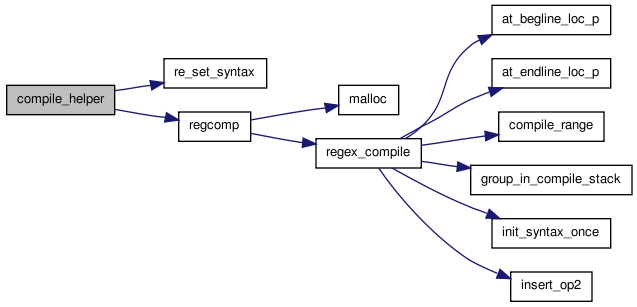


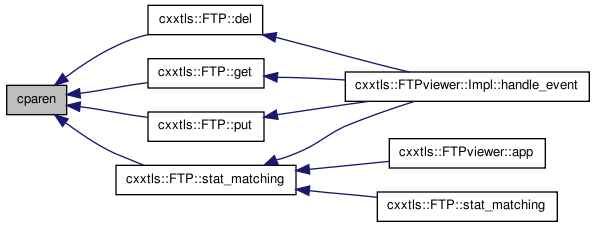


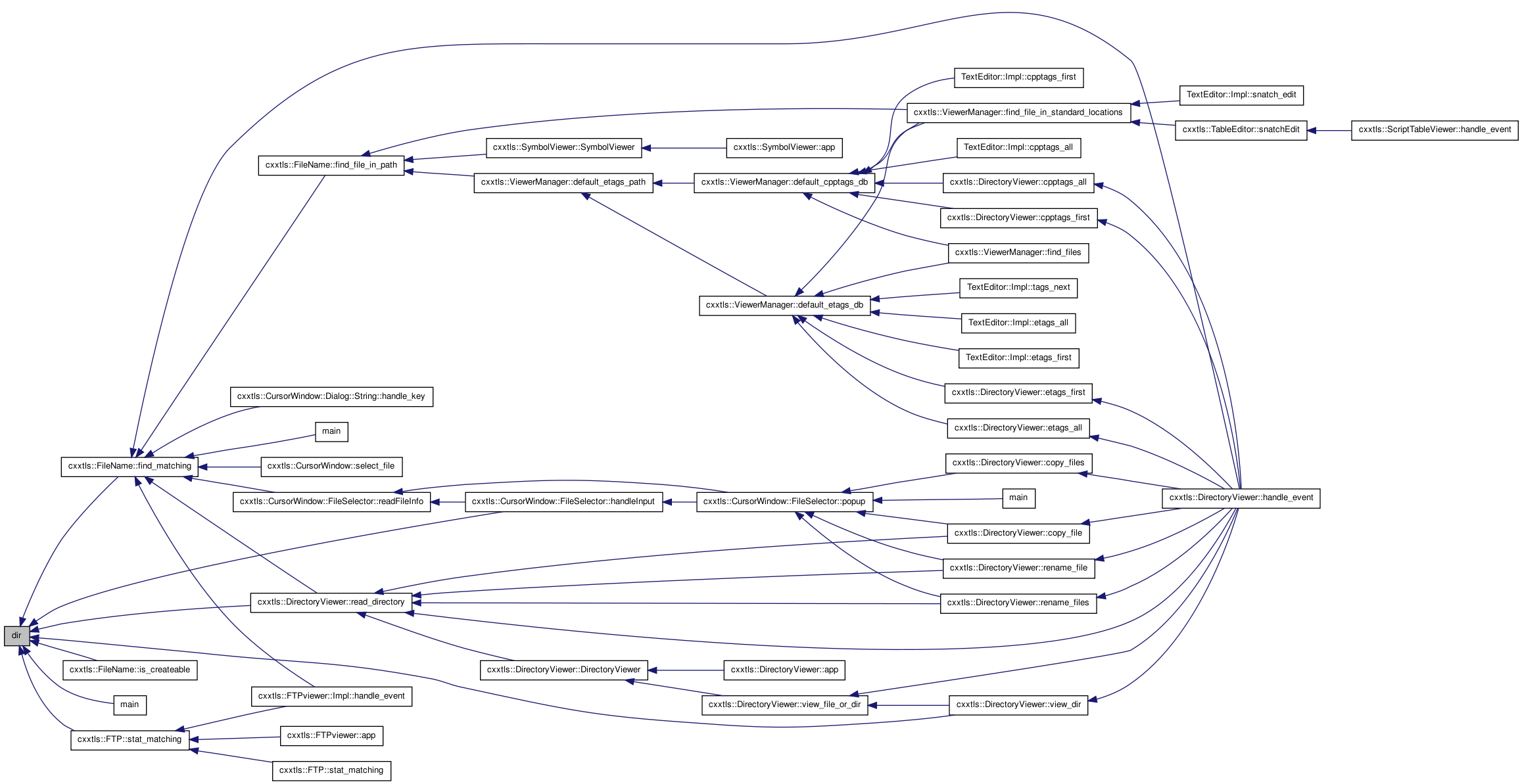
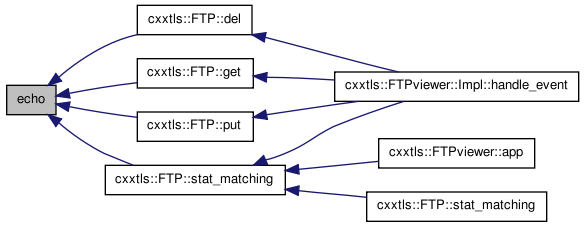

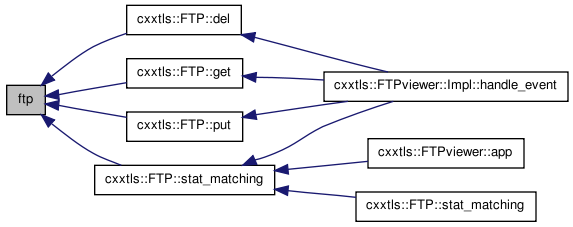


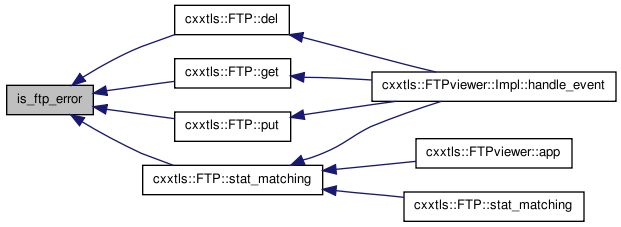
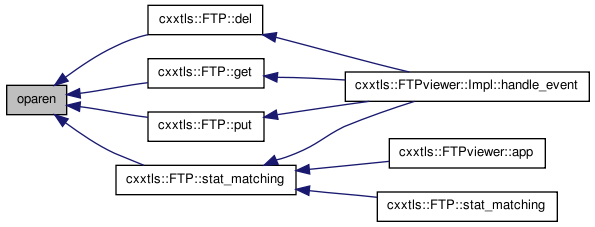
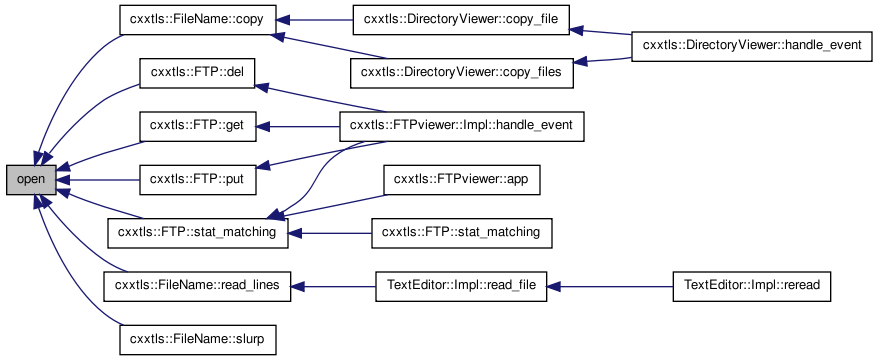



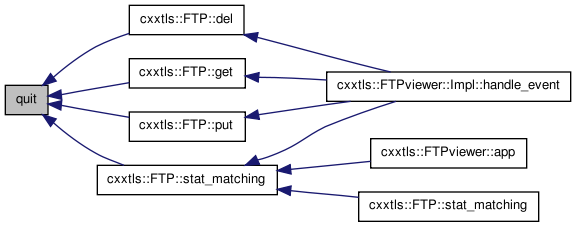
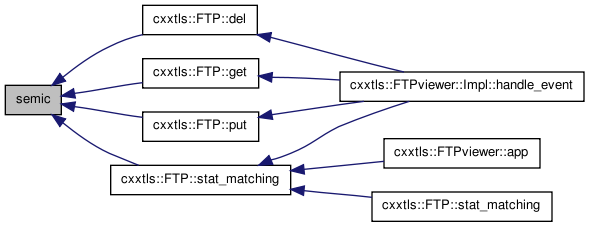
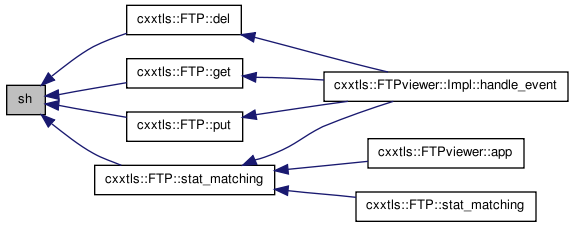
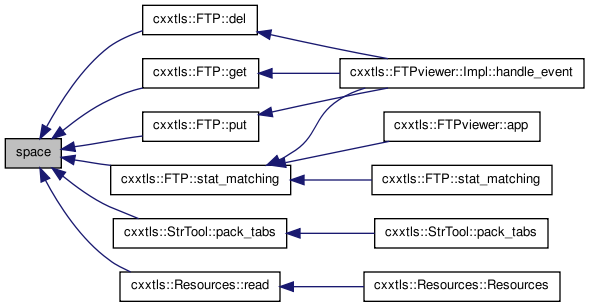
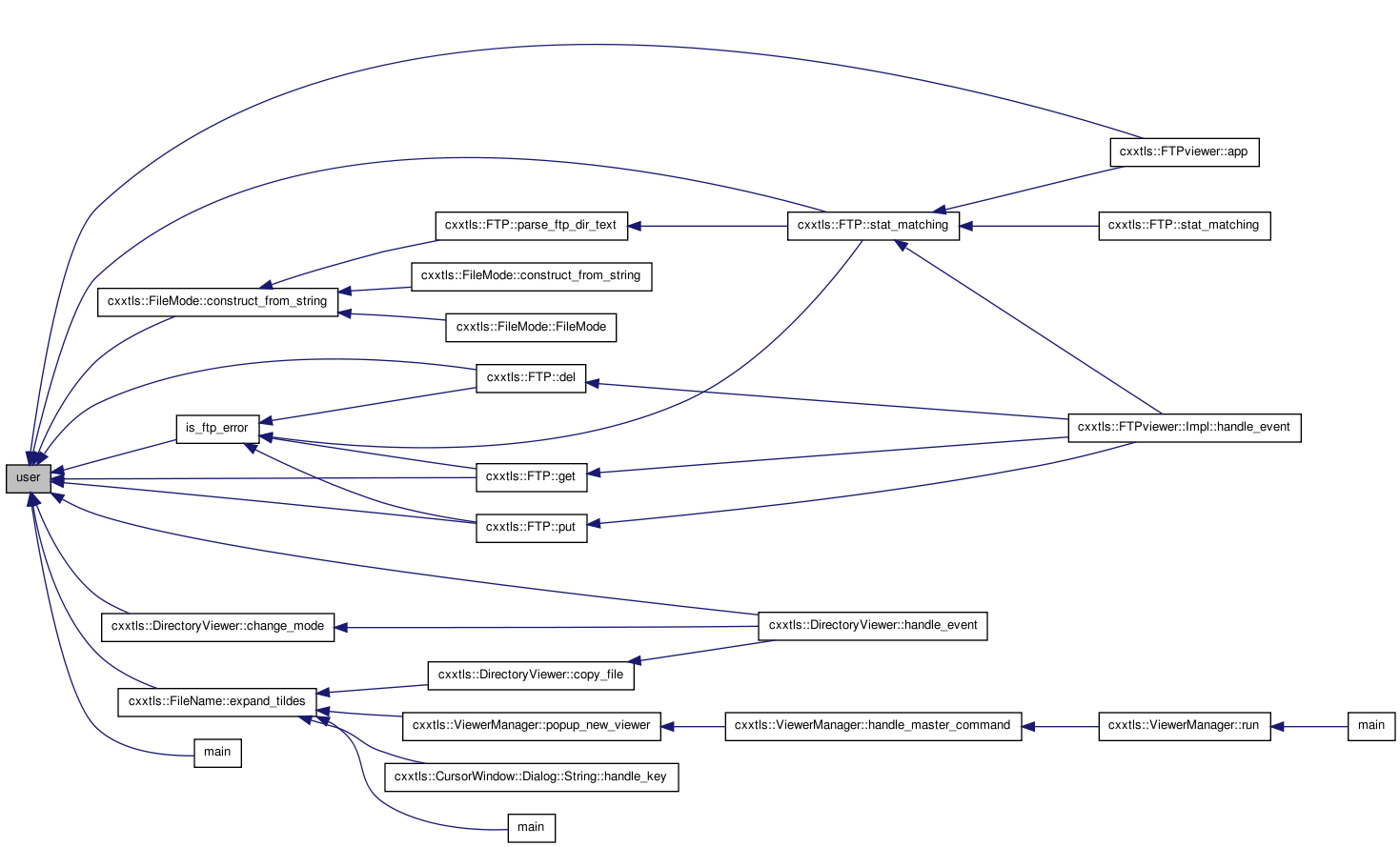



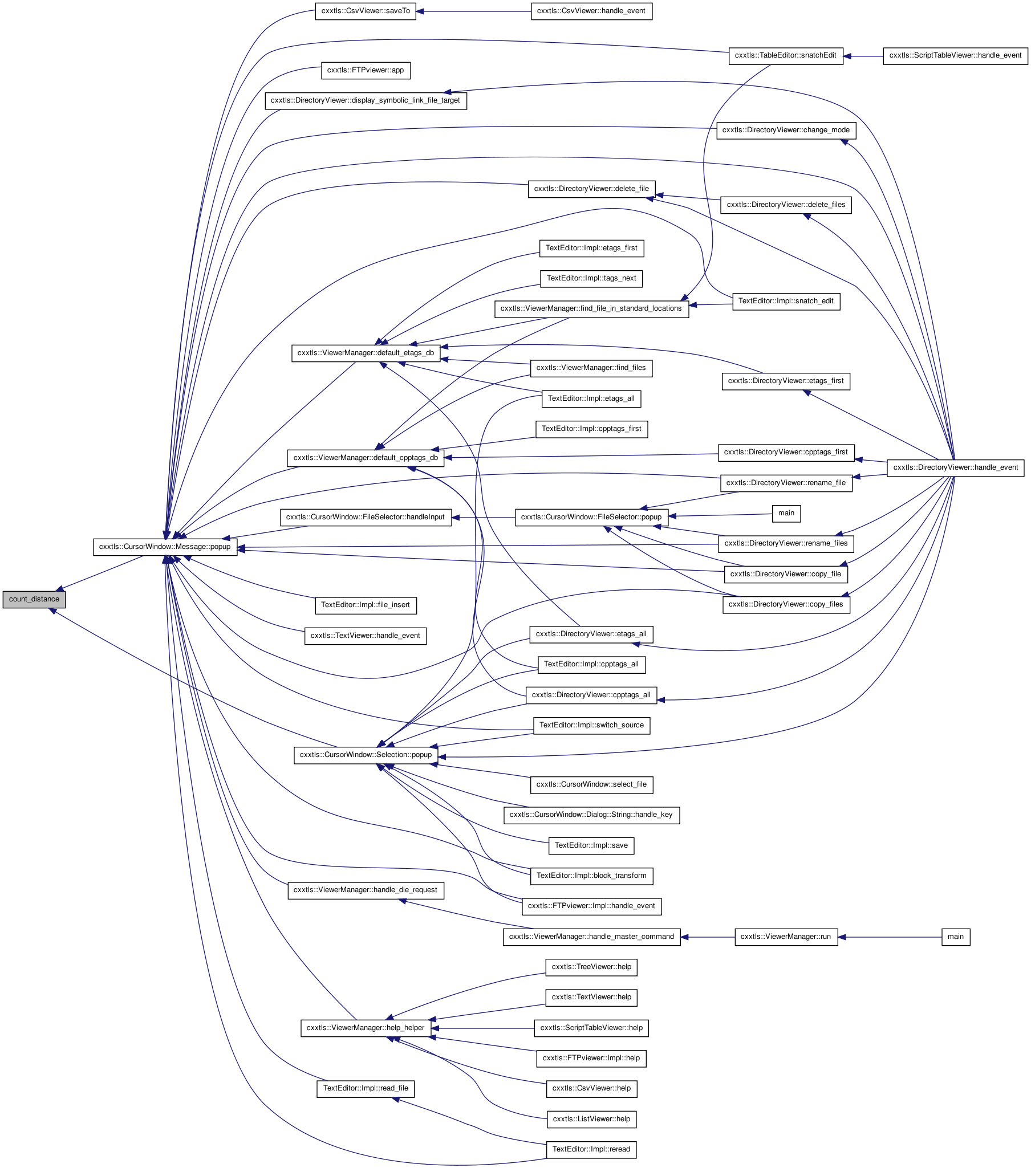




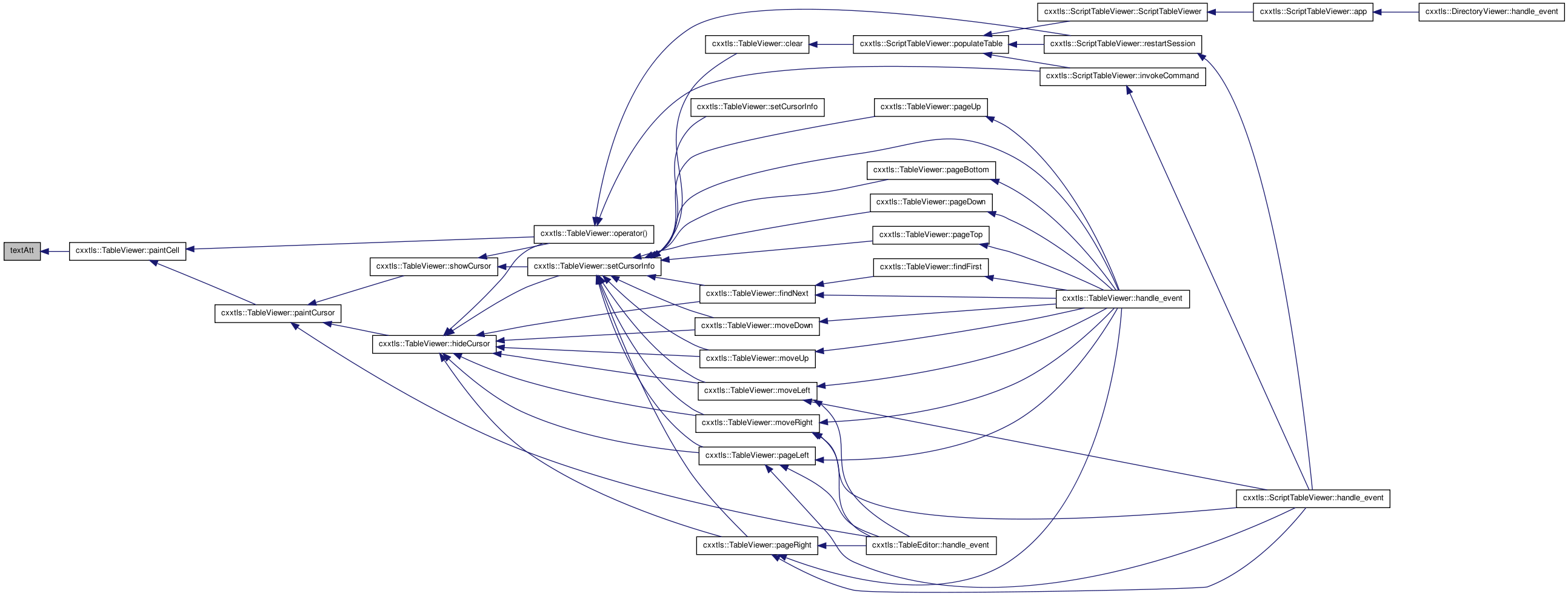


 1.6.3
1.6.3